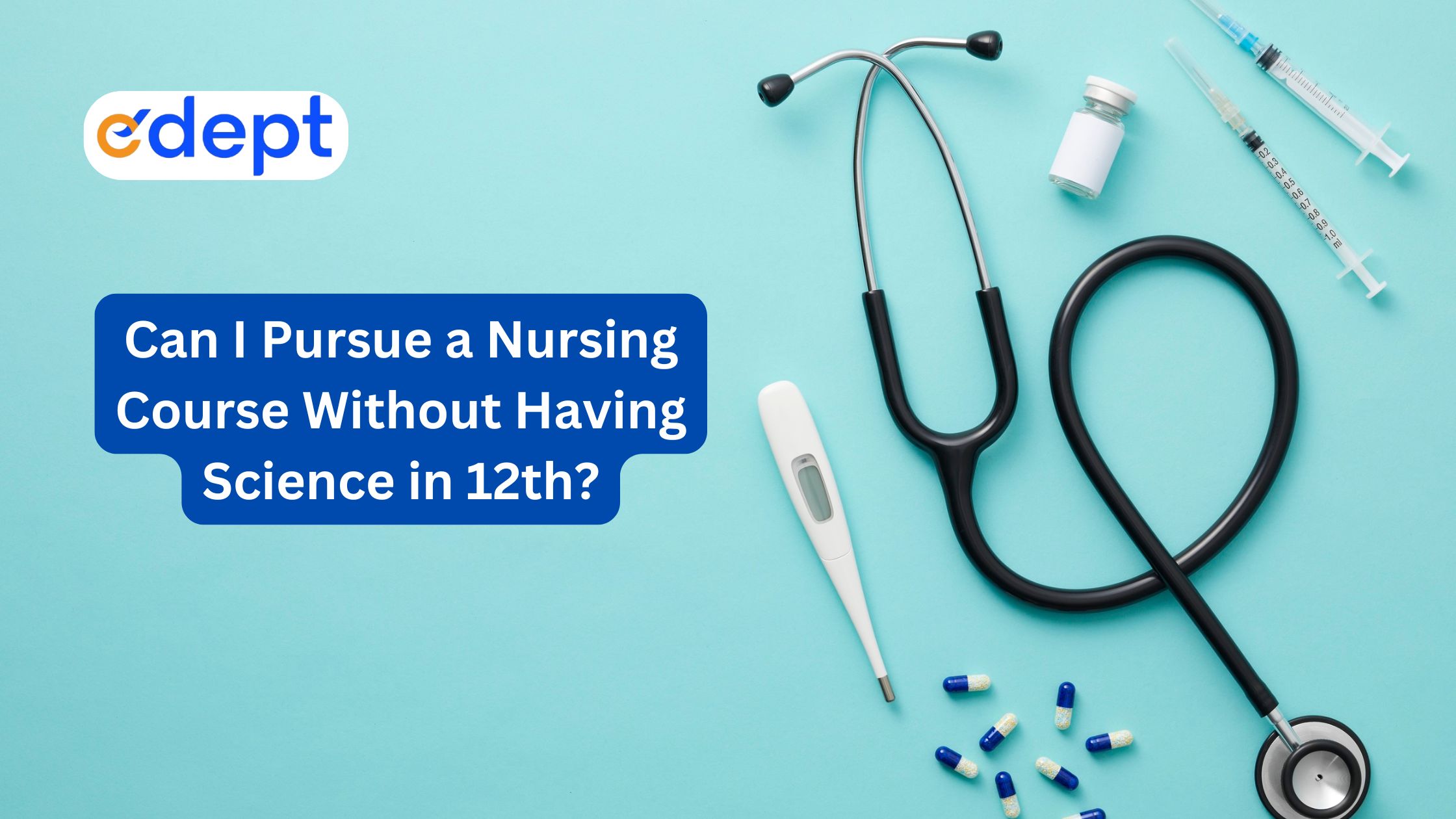Choosing a career in nursing is a meaningful and secure path. Many students across India aspire to become nurses, not just for job stability but to truly make a difference in people’s lives. A common question, however, is: Can I Pursue a nursing course without science in 12th? The answer is yes, but your choices might be limited.
In this blog, we’ll discuss the types of nursing courses available, eligibility for students from non-science backgrounds, and career opportunities that follow.
Understanding Nursing Courses in India
Nursing education in India offers various course types to suit different educational backgrounds. These courses range from basic entry-level training to advanced degrees, depending on your qualifications and career goals. Whether you’re from a science, commerce, or arts stream, there’s a course designed to give you the right start in healthcare.
The nursing courses are generally divided into four categories:
-
Certificate Courses – Short-term training programmes focused on basic skills.
-
Diploma Courses – More detailed than certificates and usually open to non-science students.
-
Undergraduate Degrees – Like B.Sc Nursing, meant for students with science in 12th.
-
Post-Basic Programmes – For those who have already completed diploma-level nursing courses and want to upgrade their qualifications.
Let’s take a closer look at the most common options.
Major Nursing Course Types
1. Auxiliary Nurse Midwifery (ANM)
-
Duration: 1 to 1.5 years
-
Eligibility: 10+2 in any stream (Arts, Commerce or Science)
-
Best for: Students without a science background
-
Course Focus: Basic nursing, maternity care, child health, community services
ANM is a great entry-level course for students from any stream. It’s particularly useful for those looking to work in rural health settings, government health centres, or NGOs.
2. General Nursing and Midwifery (GNM)
-
Duration: 3 years + 6 months internship
-
Eligibility: 10+2 with English; science is preferred but not always mandatory
-
Course Focus: Hospital care, patient treatment, emergency care, and nursing ethics
In some states, arts students are also accepted for GNM if they meet the marks criteria and studied English in 12th. GNM offers broader training than ANM and leads to better job options.
3. B.Sc in Nursing
-
Duration: 4 years
-
Eligibility: 10+2 with Physics, Chemistry, and Biology
-
Course Focus: Advanced nursing theory, clinical practice, anatomy, and pharmacology
Unfortunately, this course is not open to non-science students. It’s designed for those with a strong science foundation.
4. Post Basic B.Sc in Nursing
-
Duration: 2 years
-
Eligibility: GNM diploma + registered as a nurse
-
Best for: Those who want to upgrade their qualification after GNM
This is an ideal option if you first complete GNM and later want to pursue a degree-level qualification.
Can Arts or Commerce Students Apply for Nursing Courses?
Yes, absolutely. If you’ve completed 12th with Arts or Commerce, you can still apply for courses like ANM and in some cases, GNM—depending on the state’s nursing council. These courses equip you with the essential skills required to begin working in healthcare settings such as clinics, old-age homes, and community centres.
However, if you’re aiming for advanced or degree-level nursing education (like B.Sc Nursing), science in 12th is necessary.
Best Nursing Course Options Without Science
If you’re from a non-science stream, consider the following:
ANM (Auxiliary Nurse Midwifery)
This course gives you fundamental healthcare training and prepares you for roles in maternity care, immunisation, and basic patient support.
GNM (General Nursing and Midwifery)
Some states allow arts students to enrol, provided they studied English and secured the required marks. GNM opens more doors than ANM and can lead to further study through Post Basic B.Sc.
Certificate/Short-Term Courses
Some institutes offer short-term nursing training courses aimed at support roles like nursing assistants or elder care aides. While these are not recognised as full-fledged nursing degrees, they do help in gaining employment in private care facilities.
Eligibility Criteria at a Glance
| Course | Non-Science Eligible | Minimum Marks | Duration |
|---|---|---|---|
| ANM | Yes | 40-45% in 12th | 1 – 1.5 years |
| GNM | Sometimes | 40-50% + English | 3 years + internship |
| B.Sc Nursing | No | 45-50% in PCB | 4 years |
| Post Basic B.Sc | Yes (after GNM) | GNM diploma + RN | 2 years |
Note: Always check with your state nursing council or the institution for exact eligibility criteria, as it can vary.
Career Opportunities After ANM or GNM
Completing ANM or GNM can lead to rewarding job roles such as:
-
Staff Nurse at private hospitals
-
Community Health Worker
-
Maternity Assistant in rural clinics
-
NGO healthcare volunteer
-
School Health Nurse
-
Home Care Nurse
Later, you can upgrade to Post Basic B.Sc for higher roles and government job eligibility.
Conclusion
To sum it up—yes, you can pursue a nursing course even if you don’t have science in your 12th. Courses like ANM, GNM (in some states), and certificate-based nursing training courses are excellent ways to enter the field. With dedication and the right training, you can build a successful and meaningful career in healthcare.
Make sure to research the eligibility rules of your preferred institute or state council, and pick the course that aligns with your goals.
FAQs
1. Can I do B.Sc Nursing without science in 12th?
No. B.Sc Nursing requires Physics, Chemistry, and Biology in 12th.
2. What is the difference between ANM and GNM?
ANM is a shorter course focused on basic care, while GNM offers more in-depth training and wider career options.
3. Are there online nursing training courses in India?
Yes, some short-term or hybrid-format nursing training courses are available online, but in-person practice is crucial for skill development.
